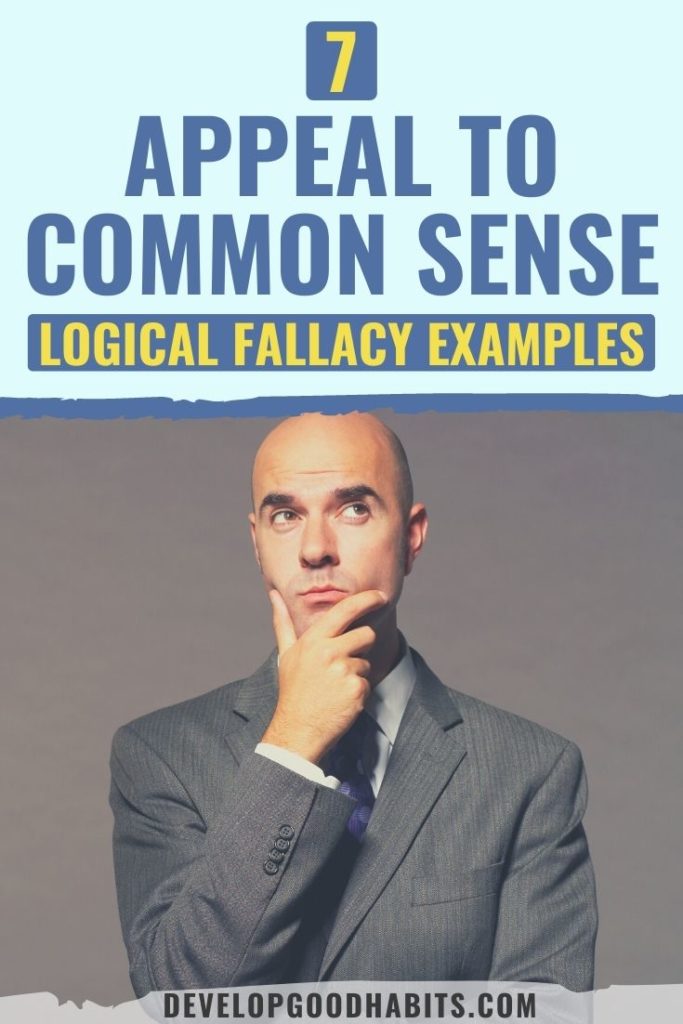There might be affiliate links on this page, which means we get a small commission of anything you buy. As an Amazon Associate we earn from qualifying purchases. Please do your own research before making any online purchase.
When you’re trying to make an argument for (or against) something, you need to construct a claim to get your listeners to believe what you’re saying.
And there are few better ways to do this than to say something that your listeners already believe to be true.
Like other cognitive biases, we often rely on confirmation biases to simplify our lives. We love mental shortcuts, so if someone hears something that confirms or reinforces what they already know to be true, they’re going to agree. This prevents people from having to learn new information or challenge their existing knowledge.
So, just how strong is our tendency to confirm the things we already know? A 1979 Stanford study found the confirmation bias to be pretty significant. In the study, half of the subjects favored capital punishment, and the other half opposed it. All participants were directed to read two fabricated studies–one that supported the claim that capital punishment is an effective deterrent to committing major crimes, and the other opposing it. Regardless of which fictional study each participant read, people maintained their original viewpoints, referencing data that supported their beliefs and disregarding evidence that didn’t.
With a strong tendency to believe what we already know, it makes sense that the appeal to common sense logical fallacy is an effective method to use to get other people to accept your claim, as it aligns with their current beliefs (or common sense).
People use common sense to identify their beliefs and what they assume most others believe as well. While it may be unconscious, people don’t want to contradict what they believe the majority of their peers believe. So common sense plays a big role in our everyday decisions.
In this article, we are going to look at how common sense can be used as a tool for people to back up an otherwise unfounded argument. But before taking a look at seven examples of the appeal to common sense fallacy, let’s define it a bit more clearly.
What Is the Appeal to Common Sense Fallacy?
To understand what the appeal to common sense fallacy is, we first need to address what common sense is. Common sense is something that everyone has; however, everyone has a different idea of it.
Albert Einstein has been credited with saying, “Common sense is actually nothing more than a deposit of prejudices laid down in the mind prior to the age of eighteen.” He went on to explain that every new piece of information that people encounter in their adulthood has to stand up to this original formation of (what have come to be) “obvious” concepts.
Because of this, appeals to common sense are simply appeals to ideas that just seem…right. But because people have different experiences and beliefs, what seems right to one person might not seem right to everyone.
When one person accepts a view that someone else doesn’t, it’s usually due to a difference in their views of the world and internalized ideologies rather than an intellectual deficit or incapacity to reason.
In conversation, an appeal to common sense logical fallacy takes the following form:
It's common sense that X is true.
Therefore, X is true.
But beliefs based on common sense aren’t reliable because they aren’t supported by evidence. Rather, these beliefs rely on the ambiguous concept of something being self-evident, which can change according to someone’s personal experience.
Let’s take a look at some examples.
7 Appeal to Common Sense Logical Fallacy Examples
1. “Global warming is a hoax.”
Some naysayers of global warming claim things like: Perhaps greenhouse gases will lead to higher temperatures, but the increase in clouds will help cool the earth and reduce warming. But science tells us that clouds can have a cooling or a warming effect. Clouds can either reflect sunlight away and cool an area, or they can trap heat in, preventing it from escaping into the universe. And, as the planet warms up, clouds’ properties could transform, which could hinder their ability to cool the planet.
Or: If CO2 caused global warming, then the surface temperatures of the earth would rise in unison with the CO2 concentration in the atmosphere, which isn’t the case. However, people who make this claim are ignoring the complexity of the climate system and the wide variety of factors that contribute to global warming aside from just CO2.
2. “The more water you drink, the better off you’ll be.”
I know we are always hearing about the importance of hydration, but too much of a good thing isn’t always a great thing. The truth is, overhydration can pose a major health risk that can lead to serious health consequences. Overhydration happens when the ratio of water to salt in your body becomes far too off-balanced. Too much dilution can lead to swelling in your brain and organs, which can cause a coma or even death.
While it’s difficult to accidentally drink too much water, it sometimes happens when people over hydrate while playing sports or doing an intense workout such as running a marathon. Symptoms of overhydration include nausea, vomiting, headaches, drowsiness, confusion, muscle weakness, and becoming disoriented. To avoid overhydration, it’s critical to not drink water at a faster pace than your kidneys can eliminate, which is about 1 liter per hour.
3. “The bigger the car, the safer it is.”
While people may want to protect their newly-driving kids by getting them an SUV, bigger cars don’t necessarily reduce one’s chances of getting injured in an accident. In fact, a lot of SUVs are top-heavy and are more difficult to handle than sedans, putting them at a higher risk of rolling over than a smaller car.
Various car crash-related death statistics show that fatality rates for people driving SUVs is equal to those in standard size vehicles. When shopping for a safe car, it’s important to keep state-of-the-art safety equipment in mind, such as stability control, anti lock brakes, and side airbags, as well as a car’s performance in a variety of industry crash tests.
4. “People who go to Ivy League schools get a better education.”
This sounds like common sense, especially considering the price people pay to attend these schools. You get what you pay for, right?
Well, the quality of one’s education is more about personal drive and curiosity. Some of the most successful people are self-taught (and you can learn how to be an autodidact, as well). And, research on the best universities nationwide shows that the top 8 schools aren’t exclusively Ivy League schools.
When considering the contemporary definition of education–preparing students to graduate with opportunities for gainful employment–going to an Ivy League school doesn’t pack the punch that it used to. Recruitment now focuses on schools that offer strong individual programs or majors– employers are less interested in candidates with a brand-name diploma. And, in popular fields like STEM, it’s your abilities that count.
5. “Spanking children is acceptable because it stops bad behavior.”
While spanking your child may shock them out of their bad behavior momentarily, there is growing research that shows physical discipline such as spanking is ultimately harmful for children.
Not only does spanking not work as a method of discipline to alter childrens’ behavior, it can lead to aggressive behaviors in the children, antisocial tendencies, physical injuries, and mental health issues.

Thirty countries worldwide have banned spanking and other physical punishment toward children, both in and out of the home. However, the United States is not one of them, and surveys show that 66% of Americans still approve of children being spanked by their parents. Based on their studies, researchers and mental health professionals continue to argue against spanking by spreading the word that this method of discipline instills a hostile environment and feelings of powerlessness without eliminating the undesirable behavior.
Logically speaking, any argument in favor of spanking is only appealing to common sense rather than offering factual evidence of its effectiveness.
6. “Because alcohol kills viruses, drinking alcohol can cure you when you’re sick because it cleans out your insides.”
It’s true that alcohol can kill viruses on your unbroken skin, however, it doesn’t have this same impact inside of your body. Alcohol needs to have a concentration of at least 60% to effectively kill viruses, and even so, consuming it won’t destroy a virus. Furthermore, consuming alcohol is likely to increase your health risks, should you become infected with a virus.
What’s more, consuming alcohol won’t kill viruses in the air you breathe, nor will it disinfect your airways or give you protection against viruses. And finally, drinking alcohol actually weakens the immune system and reduces people’s ability to fight an infectious disease.
7. “If a small dose of vitamin C is beneficial to your health, a large dose is even better for you.”
There is an entire industry based on this common sense logical fallacy. The idea assumes that there is a linear relationship between the dose of vitamin C that you take and its benefits, while ignoring the truth that high doses of vitamins can be toxic. Studies have found no benefits to taking high doses of vitamin C to treat the common cold or any other health condition (such as age-related cataracts, pneumonia, and even mortality). In fact, megadoses of vitamin C can lead to adverse effects such as:
How to Respond to an Appeal to Common Sense
Anyone using this logical fallacy is hoping you’ll automatically fall for the common sense argument. But as long as you stay skeptical, you won’t fall for this. Ask for evidence to back the claim, and ask if the scientific view is different from the common sense view. If so, ask why scientists have confidence in their views, even though they contradict what common sense says.
This fallacy occurs when people rely too much on common sense when drawing a conclusion, and don’t give enough consideration to any evidence. And, when scientific evidence tells a different story than common sense, your conclusion should trust science. You can test someone’s claims against reality, analyze the evidence yourself, and you will be able to see if people making the claim are wrong in their assumptions.
Final Thoughts on the Appeal to Common Sense Logical Fallacy
It’s fine to trust your common sense when facing simple situations with few factors involved, but as soon as things become complex, it’s best to trust science. If you’re the one making the argument, make sure to address people’s current beliefs as well as their sense of reasoning by making a thorough, accessible, and respectful argument.
Hopefully these examples of the appeal to common sense logical fallacy will help you be able to identify this logical fallacy in everyday conversations in the future and prevent you from making these claims yourself.
Related Posts About Logical Fallacies
- 5 Appeal to Nature Fallacy Examples in Media and Life
- 6 Outcome Bias Examples That Can Negatively Impact Your Decisions
- 7 Self-Serving Bias Examples You See Throughout Life
- 7 Omission Bias Examples That Negatively Impact Your Life
- 6 Authority Bias Examples That Might Impact Your Decisions
- 5 Burden of Proof Fallacy Examples
- 5 Appeal to Tradition Fallacy Examples in Life
- 5 Appeal to Authority Logical Fallacy Examples
- 7 False Cause Fallacy Examples
- 7 Appeal to Ignorance Fallacy Examples
- 5 Post Hoc Fallacy Examples (and How to Respond to This Argument)
- Gambler’s Fallacy: 5 Examples and How to Avoid It
- 5 Appeal to Anger Fallacy Examples Throughout Life
- 7 Halo Effect Bias Examples in Your Daily Life
- 7 Poisoning the Well Examples Throughout Your Life
- 7 Survivorship Bias Examples You See in the Real World
- 7 Dunning Kruger Effect Examples in Your Life
- 7 Either Or (“False Dilemma”) Fallacy Examples in Real Life
- 5 Cui Bono Fallacy Examples to Find Out “Who Will Benefit”
- 6 Anchoring Bias Examples That Impact Your Decisions
- 7 Virtue Signaling Examples in Everyday Life
- 7 Cherry Picking Fallacy Examples for When People Ignore Evidence
- 9 Circular Reasoning Examples (or “Begging the Question”) in Everyday Life
- 9 Appeal to Emotion Logical Fallacy Examples
- 9 Appeal to Pity Fallacy (“Ad Misericordiam”) Examples in Everyday Life
- 9 Loaded Question Fallacy Examples in Life and Media
- 9 Confirmation Bias Fallacy Examples In Everyday Life
- 9 Bandwagon Fallacy Examples to Prevent Poor Decisions
- 5 Red Herring Fallacy Examples to Fight Irrelevant Information
- 9 Middle Ground Fallacy Examples to Spot During an Argument
- 5 False Equivalence Examples to Know Before Your Next Argument
- 7 Hasty Generalization Fallacy Examples & How to Respond to Them
- 6 Straw Man Fallacy Examples & How You Can Respond
- 6 False Dichotomy Examples & How to Counter Them
- 7 Slippery Slope Fallacy Examples (And How to Counter Them)
- What is the Planning Fallacy?
- How to Overcome the “Sunk Cost Fallacy” Mindset
Finally, if you want a simple process to counter the logical fallacies and cognitive biases you encounter in life, then follow this 7-step process to develop the critical thinking skills habit.

Connie Mathers is a professional editor and freelance writer. She holds a Bachelor's Degree in Marketing and a Master’s Degree in Social Work. When she is not writing, Connie is either spending time with her daughter and two dogs, running, or working at her full-time job as a social worker in Richmond, VA.


